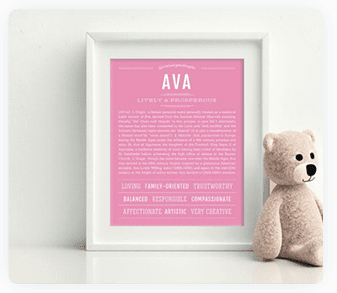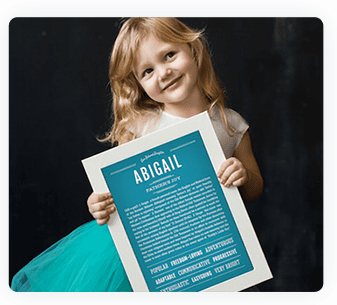Historic Figures
WITH THE NAME REBECCA
Rebecca figures importantly in the Bible and in fact shows up very early on in the book of Genesis. She is from the ancestral lands of Abraham and thus related to him as his grand-niece. She is also the sister of Laban, who will eventually become the father of Leah and Rachel (wives of Jacob). In the Bible, Abraham sends his servant to find a wife for his son Isaac in Mesopotamia (his homeland); he does not want Isaac marrying a Canaanite woman given their proclivity for idolatry. The servant is doubtful that a maiden will travel so far (from Mesopotamia to Canaan) to fulfill Abraham’s wishes, but he goes dutifully. Upon reaching the ancestral lands, he prays that God will give him a sign – which ever woman offers him and his camels water from her well will be the one. Before he is even done with his prayer, the servant immediately sees the beautiful Rebecca. She kindly offers this leathery old stranger water from her well, and so he knows she is the one. Returning to her household, and equipped with offerings of gifts, the servant asks to bring the maiden back to Canaan to marry Isaac. The family resists, wanting to keep the girl longer, but agree to ask Rebecca to decide. Women didn’t have much of a voice back then; Rebecca can be considered a feminist symbol for her free-will and independent-mind. “I will go.†She says. She returns to Canaan and upon seeing Isaac quickly covers her face with a veil, so impressed is she by his spiritual aura. After Isaac and Rebecca marry, it takes her 20 long years to conceive a child (now in ancient times, this would be serious torture for a woman like Rebecca). Both Isaac and Rebecca pray mightily for offspring, and finally she conceives twins. She feels them unsettled in her womb; worried, she goes to God. She is told that “the older will serve the younger†and that “one people will be stronger than the other.†We know now that this prophesy would be fulfilled. Her son Esau was born first and Jacob came out of her womb immediately after “holding the heel†of his brother. As Rebecca’s favorite, she would go onto help Jacob steal Esau’s birthright and blessing. She intuitively knows that Esau is simply not responsible or holy enough to receive the blessing himself. Rebecca devises a plan whereby Jacob – in the guise of Esau – will bring Isaac his goat meat as he lay blind and close to death. After his meal, Isaac will give his blessing to Jacob (unwittingly) and not Esau. Jacob immediately sees a flaw in his mother’s plan. You see, Esau is hairy and Jacob is smooth-skinned. Not to worry, Mama Rebecca had that one figured out, too. She takes the hairy skin of the goat and wraps it around Jacob. When he goes to his father, Isaac will feel the hair and know it’s Esau. Everything goes as planned, and Jacob receives the blessing. Of course, Esau arrives moments later to see this deception and furiously vows to kill Jacob, so Rebecca sends Jacob off to live with her brother Laban (this is how Leah and Rachel come into the picture). She would eventually die an old woman and never see the eventual reconciliation of her sons. Nonetheless, Rebecca is one of the more colorful women in the Bible – a matriarch, a free-thinker, a proactive go-getter – and if this isn’t enough, she’s beautiful, spiritual, compassionate and caring.
Rebecca figures importantly in the Bible and in fact shows up very early on in the book of Genesis. She is from the ancestral lands of Abraham and thus related to him as his grand-niece. She is also the sister of Laban, who will eventually become the father of Leah and Rachel (wives of Jacob). In the Bible, Abraham sends his servant to find a wife for his son Isaac in Mesopotamia (his homeland); he does not want Isaac marrying a Canaanite woman given their proclivity for idolatry. The servant is doubtful that a maiden will travel so far (from Mesopotamia to Canaan) to fulfill Abraham’s wishes, but he goes dutifully. Upon reaching the ancestral lands, he prays that God will give him a sign – which ever woman offers him and his camels water from her well will be the one. Before he is even done with his prayer, the servant immediately sees the beautiful Rebecca. She kindly offers this leathery old stranger water from her well, and so he knows she is the one. Returning to her household, and equipped with offerings of gifts, the servant asks to bring the maiden back to Canaan to marry Isaac. The family resists, wanting to keep the girl longer, but agree to ask Rebecca to decide. Women didn’t have much of a voice back then; Rebecca can be considered a feminist symbol for her free-will and independent-mind. “I will go.†She says. She returns to Canaan and upon seeing Isaac quickly covers her face with a veil, so impressed is she by his spiritual aura. After Isaac and Rebecca marry, it takes her 20 long years to conceive a child (now in ancient times, this would be serious torture for a woman like Rebecca). Both Isaac and Rebecca pray mightily for offspring, and finally she conceives twins. She feels them unsettled in her womb; worried, she goes to God. She is told that “the older will serve the younger†and that “one people will be stronger than the other.†We know now that this prophesy would be fulfilled. Her son Esau was born first and Jacob came out of her womb immediately after “holding the heel†of his brother. As Rebecca’s favorite, she would go onto help Jacob steal Esau’s birthright and blessing. She intuitively knows that Esau is simply not responsible or holy enough to receive the blessing himself. Rebecca devises a plan whereby Jacob – in the guise of Esau – will bring Isaac his goat meat as he lay blind and close to death. After his meal, Isaac will give his blessing to Jacob (unwittingly) and not Esau. Jacob immediately sees a flaw in his mother’s plan. You see, Esau is hairy and Jacob is smooth-skinned. Not to worry, Mama Rebecca had that one figured out, too. She takes the hairy skin of the goat and wraps it around Jacob. When he goes to his father, Isaac will feel the hair and know it’s Esau. Everything goes as planned, and Jacob receives the blessing. Of course, Esau arrives moments later to see this deception and furiously vows to kill Jacob, so Rebecca sends Jacob off to live with her brother Laban (this is how Leah and Rachel come into the picture). She would eventually die an old woman and never see the eventual reconciliation of her sons. Nonetheless, Rebecca is one of the more colorful women in the Bible – a matriarch, a free-thinker, a proactive go-getter – and if this isn’t enough, she’s beautiful, spiritual, compassionate and caring.
Rebecca figures importantly in the Bible and in fact shows up very early on in the book of Genesis. She is from the ancestral lands of Abraham and thus related to him as his grand-niece. She is also the sister of Laban, who will eventually become the father of Leah and Rachel (wives of Jacob). In the Bible, Abraham sends his servant to find a wife for his son Isaac in Mesopotamia (his homeland); he does not want Isaac marrying a Canaanite woman given their proclivity for idolatry. The servant is doubtful that a maiden will travel so far (from Mesopotamia to Canaan) to fulfill Abraham’s wishes, but he goes dutifully. Upon reaching the ancestral lands, he prays that God will give him a sign – which ever woman offers him and his camels water from her well will be the one. Before he is even done with his prayer, the servant immediately sees the beautiful Rebecca. She kindly offers this leathery old stranger water from her well, and so he knows she is the one. Returning to her household, and equipped with offerings of gifts, the servant asks to bring the maiden back to Canaan to marry Isaac. The family resists, wanting to keep the girl longer, but agree to ask Rebecca to decide. Women didn’t have much of a voice back then; Rebecca can be considered a feminist symbol for her free-will and independent-mind. “I will go.†She says. She returns to Canaan and upon seeing Isaac quickly covers her face with a veil, so impressed is she by his spiritual aura. After Isaac and Rebecca marry, it takes her 20 long years to conceive a child (now in ancient times, this would be serious torture for a woman like Rebecca). Both Isaac and Rebecca pray mightily for offspring, and finally she conceives twins. She feels them unsettled in her womb; worried, she goes to God. She is told that “the older will serve the younger†and that “one people will be stronger than the other.†We know now that this prophesy would be fulfilled. Her son Esau was born first and Jacob came out of her womb immediately after “holding the heel†of his brother. As Rebecca’s favorite, she would go onto help Jacob steal Esau’s birthright and blessing. She intuitively knows that Esau is simply not responsible or holy enough to receive the blessing himself. Rebecca devises a plan whereby Jacob – in the guise of Esau – will bring Isaac his goat meat as he lay blind and close to death. After his meal, Isaac will give his blessing to Jacob (unwittingly) and not Esau. Jacob immediately sees a flaw in his mother’s plan. You see, Esau is hairy and Jacob is smooth-skinned. Not to worry, Mama Rebecca had that one figured out, too. She takes the hairy skin of the goat and wraps it around Jacob. When he goes to his father, Isaac will feel the hair and know it’s Esau. Everything goes as planned, and Jacob receives the blessing. Of course, Esau arrives moments later to see this deception and furiously vows to kill Jacob, so Rebecca sends Jacob off to live with her brother Laban (this is how Leah and Rachel come into the picture). She would eventually die an old woman and never see the eventual reconciliation of her sons. Nonetheless, Rebecca is one of the more colorful women in the Bible – a matriarch, a free-thinker, a proactive go-getter – and if this isn’t enough, she’s beautiful, spiritual, compassionate and caring.



